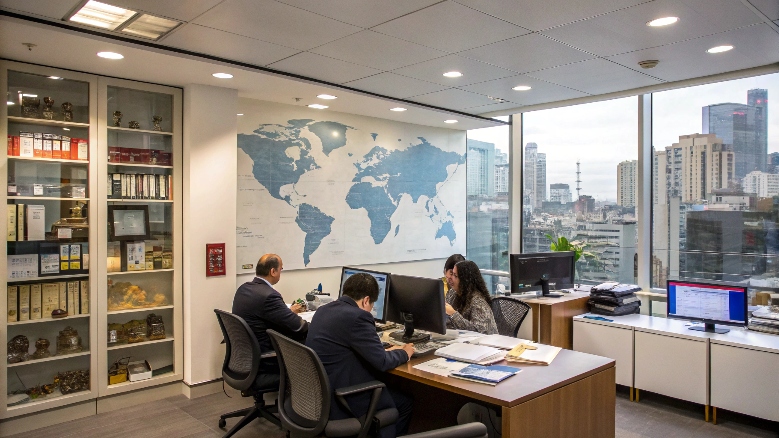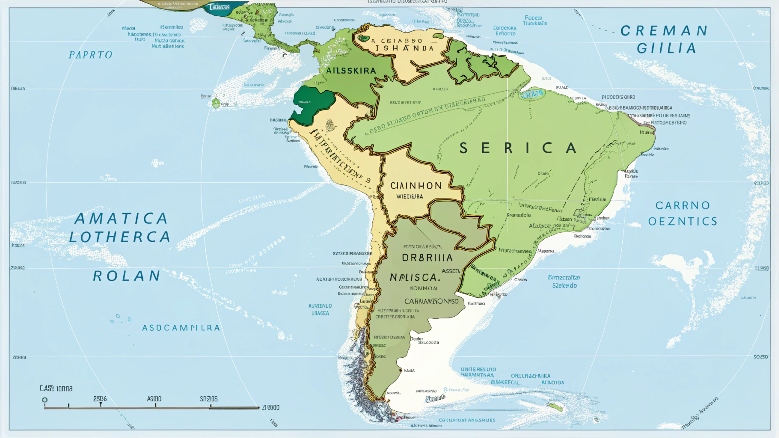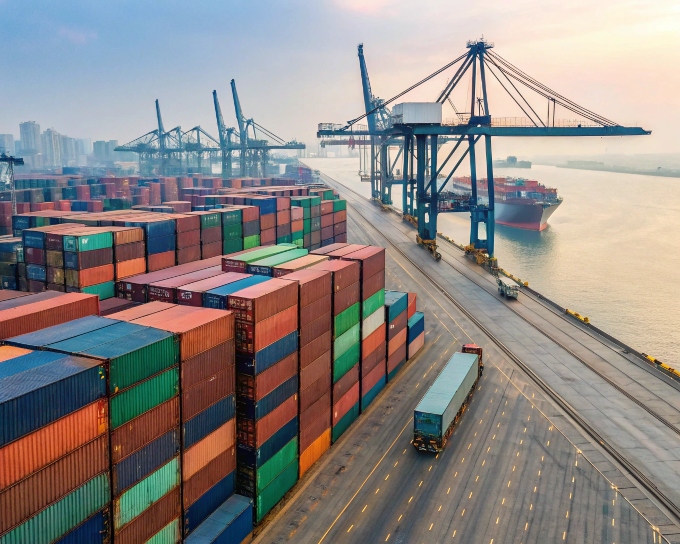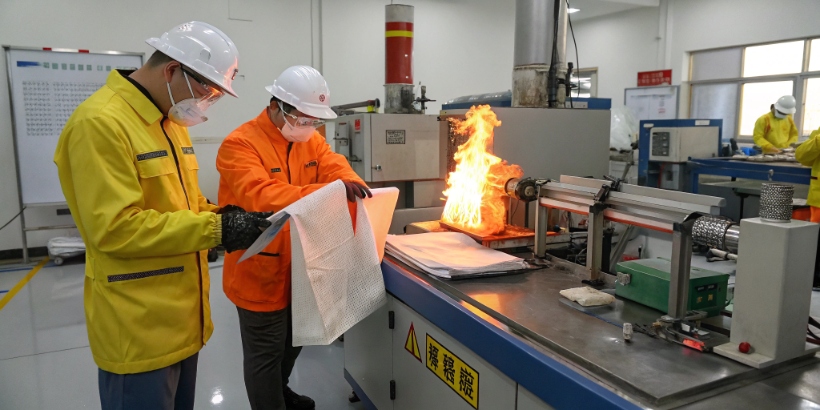You have heard that foreign trade companies sometimes offer lower prices for the same goods than the factories themselves. This might seem impossible. Why would a middleman be cheaper?
Foreign trade companies often offer lower prices than factories due to their bulk purchasing power across multiple clients, specialized sourcing knowledge, ability to consolidate orders, and lean operational structures that minimize overhead, allowing them to secure better factory rates and optimize shipping logistics for competitive pricing.

I remember being puzzled by this myself when I first started looking into sourcing products. It just did not make sense on the surface. You would think going directly to the source, the factory, would always be the cheapest way to buy. But that is not always how it works in the real world of international trade. Let us dig deeper into the reasons why this often appears to be the case and how different sourcing methods compare.
Can I Mix Different Baby Products in One Container?
You need different baby products but do not want to fill multiple containers. Shipping costs can skyrocket if you do not optimize space. So, is it even possible to mix products?
Yes, you can absolutely mix different baby products in one container. This process is known as "Less than Container Load" (LCL) or "consolidated shipping." This strategy allows businesses to optimize shipping costs, reduce inventory, and diversify product offerings by combining goods from multiple suppliers into a single shipment.

When I first started exporting, the idea of filling an entire container with just one type of item felt daunting, especially for a small business. That is where consolidated shipping, or mixing different products in one container, becomes a game-changer. This approach allows you to order smaller quantities of various items. This helps manage inventory levels. It also reduces your financial risk. Instead of committing to thousands of units of a single product, you can order hundreds of different products. This flexibility is vital for businesses looking to offer a diverse range of items without the massive upfront investment required for full container loads (FCL) of each product.
Advantages of Mixing Products
Mixing products allows for greater product diversity in your inventory. This means you can offer a wider selection to your customers without holding excessive stock of any single item. It also significantly optimizes shipping costs. Instead of paying for empty space in multiple containers, you pay for the exact volume your goods occupy in a shared container. This is particularly beneficial for small to medium-sized businesses that cannot fill an entire container with a single product. It also helps in testing new products in the market without large financial commitments. This method provides flexibility. You can bring in new items more frequently.
Challenges and Solutions
However, mixing products can add complexity. You need careful coordination if you are sourcing from multiple factories. Each factory needs to be on the same schedule for production and delivery to the consolidation warehouse. Communication among all parties is key. This is often where a foreign trade company can add value. They specialize in consolidating orders from various suppliers. They manage the logistics of picking up goods from different factories, bringing them to a central warehouse, and then packing them efficiently into one container. They handle the complex paperwork and customs declarations for all the different items. This reduces the burden on you and helps avoid delays or errors during shipping. They often have established relationships with freight forwarders who can handle LCL shipments smoothly.
| Aspect | FCL (Full Container Load) | LCL (Less than Container Load / Mixed) |
|---|---|---|
| Cost Efficiency | Lower per-unit cost for large volumes | Higher per-unit cost, but lower overall if volume is small |
| Product Variety | Limited to one or few products in large quantities | High, allows for diverse product mix |
| Inventory Risk | Higher due to large stock of single item | Lower due to smaller quantities of diverse items |
| Logistics Complexity | Simpler (one pickup point) | Higher (multiple pickups, consolidation needed) |
| Ideal For | Large businesses, single product focus | Small to medium businesses, diverse product portfolio |
Advantages and Disadvantages of Sourcing from Factories.
You are considering buying directly from a factory. Direct sourcing sounds great, but it comes with its own set of challenges. Is it the right path for you?
Sourcing directly from factories offers potential advantages like lower per-unit costs for very large orders, direct communication, and better control over product customization. However, it comes with significant disadvantages, including higher minimum order quantities (MOQs), complex communication, greater risk in quality control, and managing all logistics and certifications yourself.

When I first explored manufacturing, the idea of "going straight to the source" seemed like the holy grail. The dream was to cut out the middleman and get the best price. And sometimes, this can be true. Direct factory sourcing allows for the highest degree of customization. You can work closely with their engineering teams to design unique products or modify existing ones precisely to your specifications. This level of direct input is often not possible when working through a third party. If you are ordering very large volumes, the factory might be willing to offer you the best price because they value a large, direct account. They may also be more transparent about their production process and materials.
Advantages of Sourcing from Factories
One major advantage is the potential for lower unit costs. This is true especially for very large orders. By cutting out any intermediary, you avoid their markup. This can translate to better profit margins if your volume is high enough to meet the factory’s minimum order quantities (MOQs). You also get direct access to the manufacturing process. This means you can discuss technical details directly with the engineers and production managers. This can lead to faster resolution of technical issues. It also gives you greater control over product customization and quality specifications. You can build a direct relationship with the factory. This relationship can be valuable for long-term supply and future product development. You have direct insight into their capabilities.
Disadvantages of Sourcing from Factories
However, there are significant downsides. Factories often have very high MOQs. This means you must commit to large volumes, which ties up more capital and increases inventory risk. Communication can also be a major hurdle. Language barriers and cultural differences can lead to misunderstandings, delays, and errors. Factories usually specialize in production, not customer service or export logistics. You will be responsible for all aspects of quality control. You must manage the entire shipping process. You must ensure all necessary certifications and documentation are in place. If there are quality issues, resolving them directly with a factory can be challenging and time-consuming. You also bear the full risk if anything goes wrong. This approach often requires more experience and resources.
| Aspect | Advantages | Disadvantages |
|---|---|---|
| Cost | Potentially lower unit cost (for high MOQs) | High MOQs, higher capital tie-up |
| Communication | Direct access to engineers, full customization | Language barriers, cultural differences, less customer service |
| Control | High control over production & specifications | Full responsibility for QC, logistics, certifications |
| Risk | Direct relationship, transparency | Higher risk if issues arise, no intermediary buffer |
| Order Volume | Best for very large, consistent orders | Not suitable for small or diverse orders |
Advantages and Disadvantages of Sourcing from Our Foreign Trade Company.
You are considering using a foreign trade company. You might worry about extra costs or losing direct control. But a good foreign trade company can offer significant benefits.
Sourcing from a foreign trade company offers advantages like lower MOQs, diversified sourcing across multiple factories, reduced communication barriers, streamlined logistics, and risk mitigation. However, potential disadvantages include a slightly higher unit cost due to their markup, less direct control over production, and reliance on their network and transparency.

When I realized how complex direct sourcing could be, especially for diverse product lines and smaller volumes, foreign trade companies became very attractive. They act as your local sourcing arm in China. They speak the language, understand the culture, and know the local market. They have existing relationships with many factories, meaning they can find the best match for your specific needs. This is true even if it is a niche product or a small order. This significantly reduces the time and effort you would spend researching and vetting factories yourself. Their expertise in logistics and export procedures also removes a huge burden.
Advantages of Sourcing from a Foreign Trade Company
A key advantage is their ability to handle lower minimum order quantities (MOQs). Because they aggregate orders from multiple clients, they can meet a factory’s MOQ even if your individual order is small. This allows you to test new products and diversify your inventory without large upfront investments. They also simplify communication, acting as a bridge between you and the factory, handling language barriers and cultural nuances. Foreign trade companies often have established quality control procedures. They might conduct their own inspections or arrange for third-party checks before shipment. They handle all the complex export documentation, customs clearance, and shipping logistics. This frees up your time and reduces potential errors. They also mitigate risk, as they act as an intermediary if quality issues arise. Their deep market knowledge allows them to find competitive pricing across various suppliers.
Disadvantages of Sourcing from a Foreign Trade Company
The primary disadvantage is the added cost. A foreign trade company charges a service fee or adds a markup to the factory price. This means your per-unit cost might be slightly higher than if you could source directly at scale. You also have less direct control over the specific production process. While they manage quality, you are relying on their standards and reporting. Transparency can sometimes be an issue. Some trade companies might not disclose the exact factory they are using. It is crucial to choose a reputable foreign trade company that is transparent and communicates well. You are relying on their network and expertise, so trust and clear communication are paramount.
| Aspect | Advantages | Disadvantages |
|---|---|---|
| Cost | Access to competitive pricing, lower MOQs, less capital tie-up | Unit cost might be slightly higher sometime due to markup |
| Communication | Reduced language/cultural barriers, streamlined process | Less direct contact with factory production |
| Control | Managed logistics, QC, documentation, risk mitigation | Less direct control over production details |
| Risk | Lower risk, intermediary support for issues | Reliance on trade company’s integrity and network |
| Order Volume | Ideal for small to medium, diverse orders | Not the lowest unit cost for extremely high volumes |
Conclusion
Foreign trade companies can offer competitive prices due to aggregated orders and specialized services. They simplify sourcing, logistics, and quality control, offsetting slightly higher unit costs for many businesses.We have been engaged in foreign trade for nearly 20 years, and the vast majority of our customers purchase from foreign trade companies. They trust us very much, and we can help them solve many problems.





